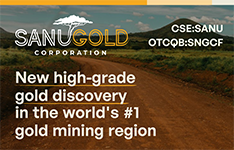Clinical-stage biotechnology company Gain Therapeutics Inc.'s (GANX:NASDAQ) drug demonstrating motor and cognition benefits in Parkinson's disease (PD) animal models and positive Phase 1 healthy volunteer (HV) data could be a "US$4 billion drug," according to one analyst who recently initiated coverage on the Maryland company.
In a December 5 research note, Roth MKM Analyst Boobalan Pachaiyappan set a Buy rating for the stock with a 12-month price target of US$7 per share, a nearly 300% increase over the stock's price at the time of writing.
"We believe the current cash position (US$12 million at 3Q24 end; runway: mid-2025) and an extended timeline to commercialization could be partially balanced by two value-driving inflections (Ph1b patient readouts) anticipated in 2025," the analyst noted.
Interim data from the initiation of the Phase 1b trial is expected mid-2025, the company said in its investor presentation.
Gain's drug has been shown to slow/stop the progression of motor and cognitive decline in GBA1 and idiopathic PD.
"Born of Magellan, our proprietary drug discovery platform, our lead program GT -02287 is in clinical development for the treatment of Parkinson’s disease with or without a GBA1 mutation," the company said in a fact sheet on its website. "GT -02287 is an oral, brain penetrant small molecule that restores the function of the lysosomal enzyme glucocerebrosidase (GCase), which becomes misfolded and impaired due to mutations of the GBA1 gene, the most common genetic abnormality associated with PD."
Drug Well-Tolerated
The Phase 1 first-in-human study of GT-02287 involved 72 healthy volunteers, males and females, up to the age of 64 (about 15% were 50 or older).
"The single- and multiple-dose levels tested were safe and generally well tolerated, with no serious adverse events or Grade 3 (severe) adverse events observed, and no other safety signals detected," Gain said.
In a December 5 research note, Roth MKM Analyst Boobalan Pachaiyappan set a Buy rating for the stock with a 12-month price target of US$7 per share, a nearly 300% increase over the stock's price at the time of writing.
Pachaiyappan noted that for context, GBA1-PD patients experience early onset, a faster disease progression, and a more severe disease burden and motor and cognition dysfunction than experienced by idiopathic PD patients.
"While many PD drugs (have been) approved, their efficacy-risk profile is far from convincing, forcing patients to discontinue treatment," the analyst wrote. "Notably, none of the approved agents target GBA1-PD patients, suggesting opportunities for novel intervention."
Another analyst, Raghuram Selvaraju of H.C. Wainwright & Co., wrote in a November 25 research note that "GT-02287 continues to advance, with favorable preclinical proof-of-concept data signaling clinical potential."
"Notably, withdrawal of GT-02287 for more than one week did not significantly affect performance in any of the tests, suggesting a disease-modifying effect," noted Selvaraju, who also rated the stock a Buy with a US$8 per share target price. "In an in vivo model … delayed administration of GT-02287 reduced levels of mitochondrial protein Miro1, an important maker for mitophagy; aggregated α-synuclein and plasma neurofilament light chain (NfL), a marker of neurodegeneration; and completely restored motor function to control levels."
Magellan Platform Leverages AI
While Gain reported a 3Q24 net loss of US$0.17 per share, that loss was moderately narrower than the firm's forecast for a net loss of US$0.23 per share in the period, the Selvaraju said. This was mainly driven by lower-than-expected operating expenses.
"Gain Therapeutics closed 3Q24 with roughly US$12M in cash and cash equivalents on its balance sheet; we continue to expect these resources to fund operations well into 1H25," Selvaraju wrote. "Our full-year 2024 net loss forecast has narrowed to US$0.95 vs. the prior US$1.06 per share, while our 2025 net loss estimate stands at US$0.68 vs. the prior US$0.71 per share."
According to Gain's investor presentation, the company is also targeting the drug for Gaucher's disease, dementia with Lewy bodies, and Alzheimer's disease.
The company's Magellan platform uses artificial intelligence-supported structural biology, proprietary algorithms, and physics-based models to target small molecules that interact with a target protein's binding sites.
"Gain is transforming drug discovery by integrating Al, physics-based methods, and supercomputing power to discover novel allosteric binding sites and potential first-in-class drug candidates from on-demand libraries with 5 trillion compounds in less than three months," the company said.
The Catalyst: More Than 10M People Have Disease Worldwide
Parkinson's disease is a neurodegenerative disease primarily of the central nervous system that affects both motor and non-motor systems. Symptoms typically develop gradually, with non-motor issues becoming more prevalent as the disease progresses.
Gain noted that that it is the second-most common neurodegenerative disease after Alzheimer's disease and that current therapies only treat symptoms and do not prevent the disease's progression.
According to the Parkinson's Foundation, nearly 1 million people are living with the disease in the U.S. right now, a number that is expected to rise to 1.2 million by 2030. More than 10 million people live with the disease worldwide.
The likelihood of developing it increases with age, and men are 1.5 times more likely to be diagnosed than women.
"The combined direct and indirect cost of Parkinson’s, including treatment, social security payments, and lost income, is estimated to be nearly US$52 billion per year in the U.S. alone," the Foundation said. "Medications alone cost an average of US$2,500 a year, and therapeutic surgery can cost up to US$100,000 per person."
Grand View Research estimated the global market size for Parkinson's disease treatment at US$4.28 billion in 2021 and said it is expected to expand at a compound annual growth rate (CAGR) of 12.1% from 2022 to 2030.
 Streetwise Ownership Overview*
Streetwise Ownership Overview*
Gain Therapeutics Inc. (GANX:NASDAQ)
"The increasing geriatric population, which is exposed to a high risk of developing Parkinson’s disease (PD), the high burden of PD in western countries, and the strong product pipeline of disease-modifying therapies are anticipated to be major drivers for the industry," Grand View noted.
Ownership and Share Structure
About 5% of the company is owned by insiders and management, according to Refinitiv.
About 6% is institutional. The rest is retail.
Top shareholders include Founder and Executive Chairman Khalid Islam with 3.59%, Greenlight Capital Inc. with 2.18%, Gotham Asset Management LLC with 1.29%, Independent Board Member Eric Richman with 1.17%, and Geode Capital Management LLC with 1.05%.
It has 25.96 million shares outstanding, 24.66 million free floating shares. Its market cap is US$46.47 million and trades in a 52-week range of US$0.89 and US$5.33.
| Want to be the first to know about interesting Biotechnology / Pharmaceuticals investment ideas? Sign up to receive the FREE Streetwise Reports' newsletter. | Subscribe |
Important Disclosures:
- Steve Sobek wrote this article for Streetwise Reports LLC and provides services to Streetwise Reports as an employee.
- This article does not constitute investment advice and is not a solicitation for any investment. Streetwise Reports does not render general or specific investment advice and the information on Streetwise Reports should not be considered a recommendation to buy or sell any security. Each reader is encouraged to consult with his or her personal financial adviser and perform their own comprehensive investment research. By opening this page, each reader accepts and agrees to Streetwise Reports' terms of use and full legal disclaimer. Streetwise Reports does not endorse or recommend the business, products, services or securities of any company.
- This article does not constitute medical advice. Officers, employees and contributors to Streetwise Reports are not licensed medical professionals. Readers should always contact their healthcare professionals for medical advice.
For additional disclosures, please click here.










































